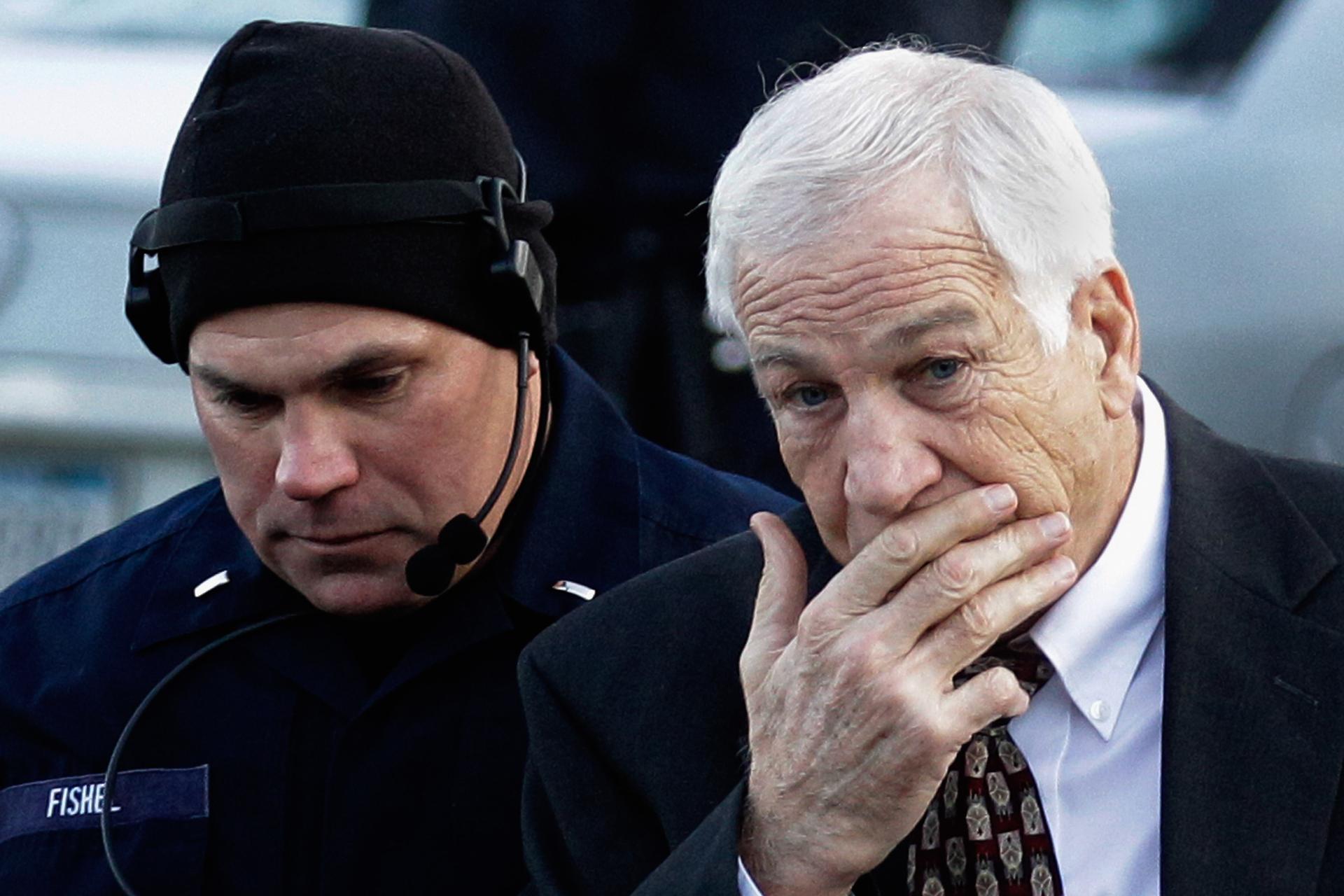Penn State football could be canceled for a year
Former Penn State assistant football coach Jerry Sandusky arrives at the Centre County Courthouse on December 13, 2011 in Bellefonte, Pennsylvania. Sandusky was attending a prelininary hearing on charges he sexual abused 10 boys.
The head of the NCAA, which governs U.S. college sport, said the Penn State sex abuse scandal involving a former football coach was so egregious that he would not rule out applying the so-called "death penalty" to the university, which would cancel an entire football season.
In his first public comments since former FBI Director Louis Freeh released a scathing report on Penn State, NCAA President Mark Emmert said the systematic sexual abuse of young boys by former assistant coach Jerry Sandusky was "unprecedented" in college sports.
Asked in an interview on the PBS Tavis Smiley show Monday night about the death penalty, Emmert said: "I don't want to take anything off the table. The fact is this is completely different than … anything else we have dealt with."
"I don't know that past precedent makes particularly good sense in this case," Emmert said.
Sandusky was convicted last month on 45 counts of abusing young boys over a period of more than a decade. He befriended many of the boys through a charity he established and abused some of them in the showers of the football program.7
Freeh's report released last week said the late head football coach Joe Paterno, along with the university president and top athletic department officials, knew of the abuse but chose not to tell the authorities because they feared it would damage the Penn State "brand."
The National Collegiate Athletic Association is considering sanctions against the Pennsylvania college. The NCAA last November sent a letter asking the university to defend its actions. After release of the Freeh report, the NCAA said in a brief statement that it was awaiting a response from Penn State.
College football is a huge generator of money for major universities in the United States because of large television contracts and millions of fans attending games every Saturday in the fall.
Critics have questioned whether the NCAA would apply harsh penalties to Penn State, which Forbes magazine rates as the third most valuable program in U.S. college football.
The last time the NCAA applied the "death penalty" in football was against Southern Methodist University (SMU) in 1987. In response to a system of payments to players, who are supposed to be amateurs, the NCAA canceled an entire season. SMU's program took years to recover.
Emmert said the NCAA would do what is best in the Penn State situation. "There's an enormous amount of political courage … to do the right thing on a variety of cases," he said.
Once Penn State responds to the NCAA's letter, the organization will decide whether to press charges against the college. Key decisions on the matter will be made by an infractions committee that consists of ten members, a majority drawn from universities that are members of major college conferences. The chair of the committee is Britton Banowsky, Commissioner of Conference USA.
(Reporting By Greg McCune; Editing by Paul Thomasch and David Storey)
The story you just read is accessible and free to all because thousands of listeners and readers contribute to our nonprofit newsroom. We go deep to bring you the human-centered international reporting that you know you can trust. To do this work and to do it well, we rely on the support of our listeners. If you appreciated our coverage this year, if there was a story that made you pause or a song that moved you, would you consider making a gift to sustain our work through 2024 and beyond?
